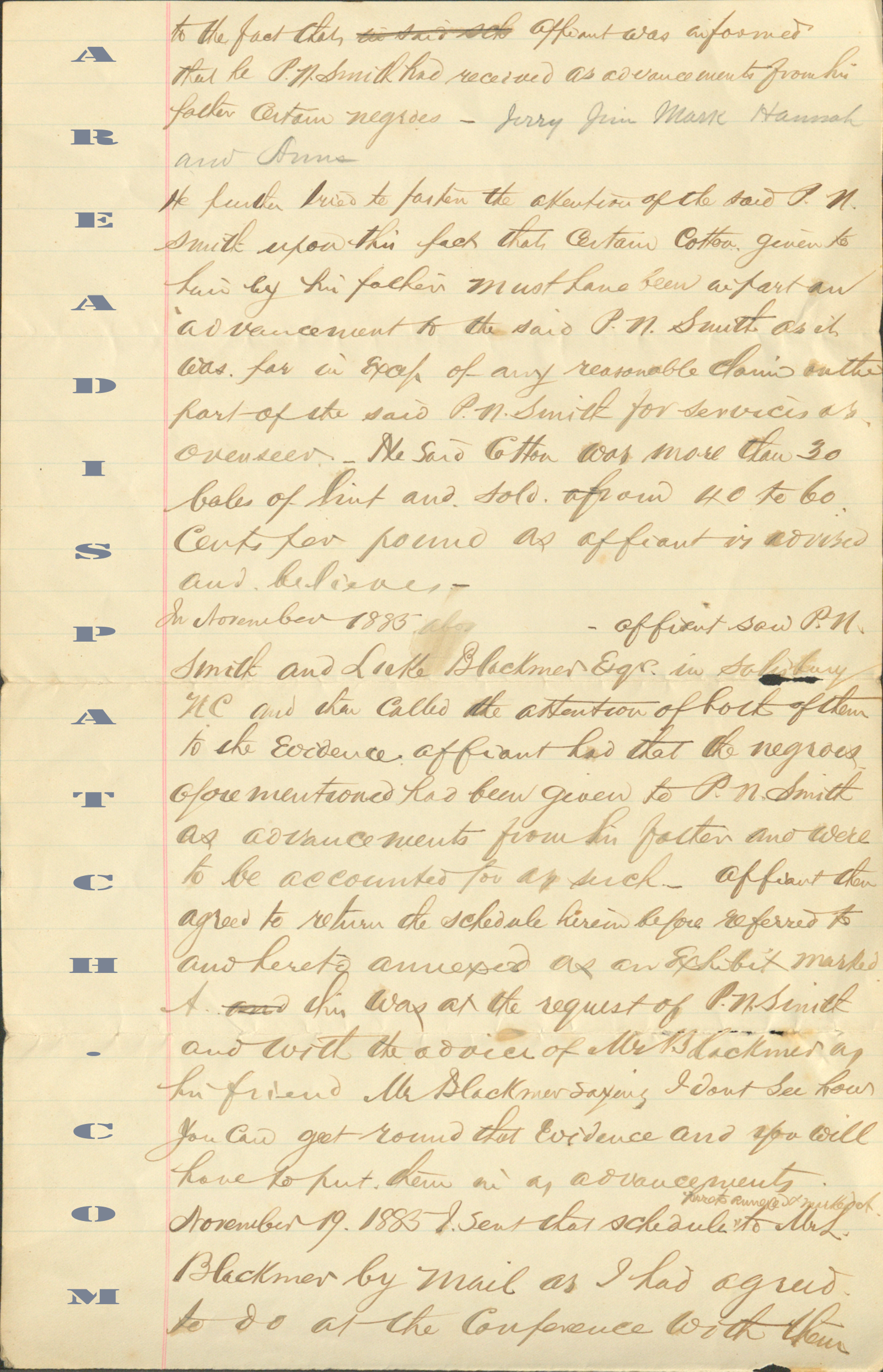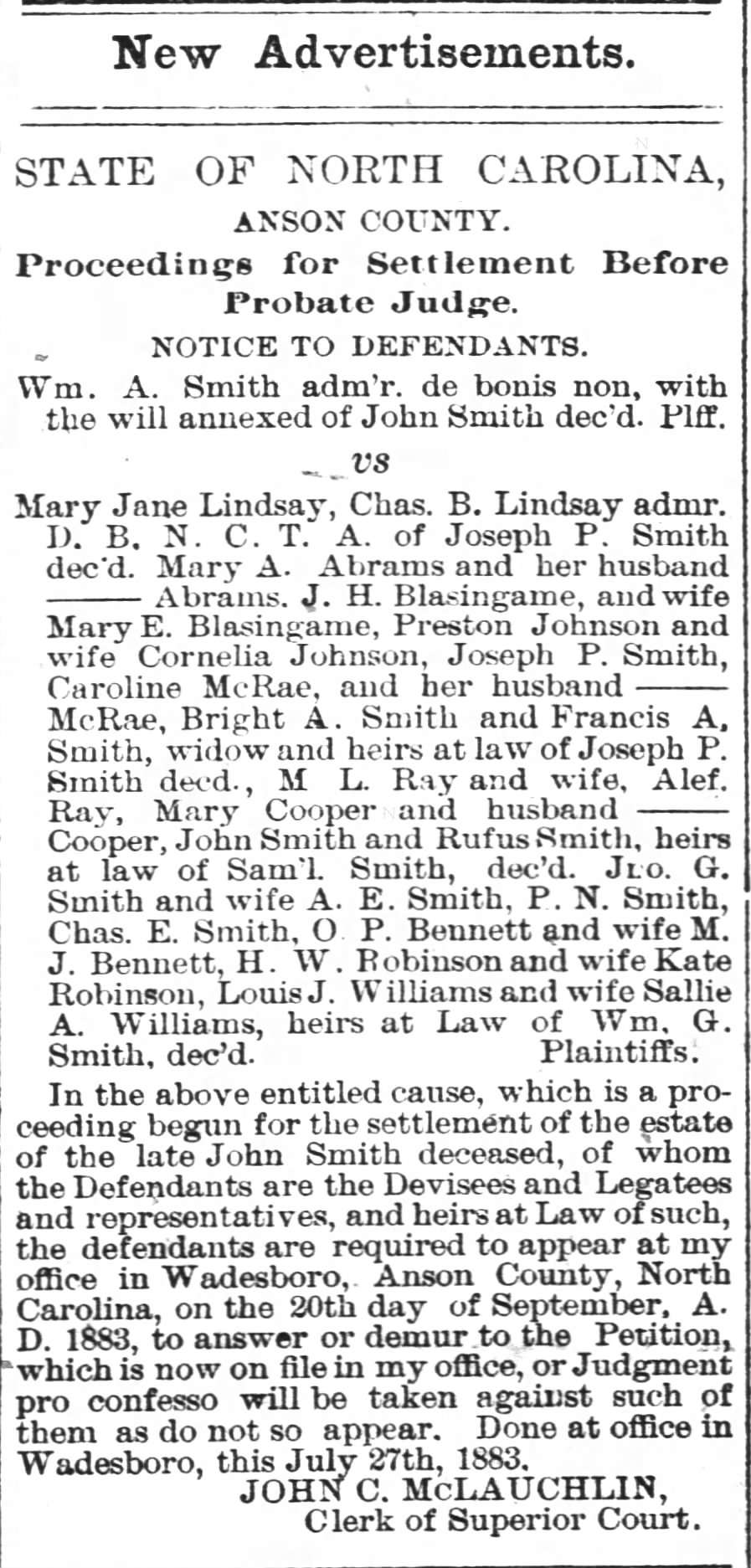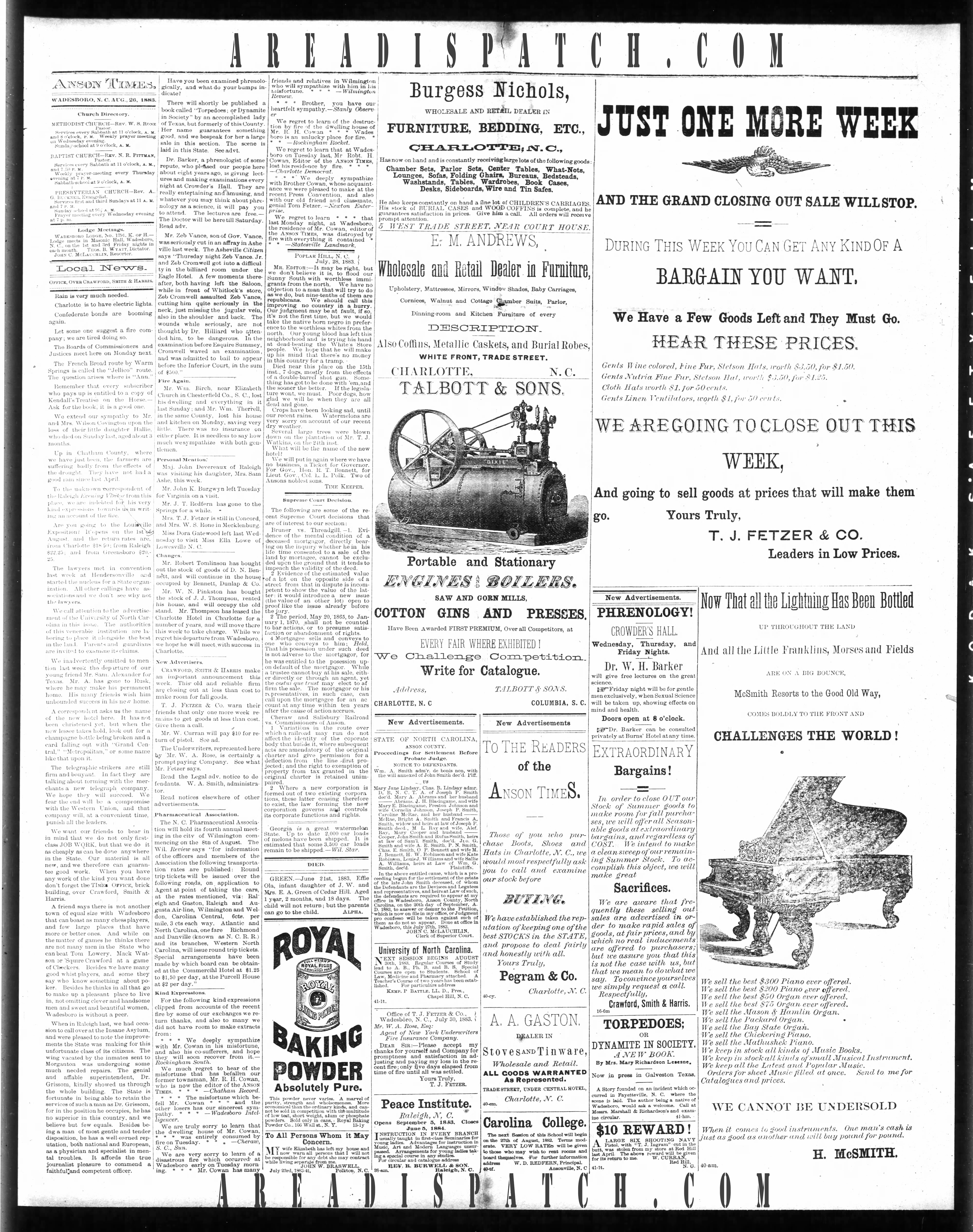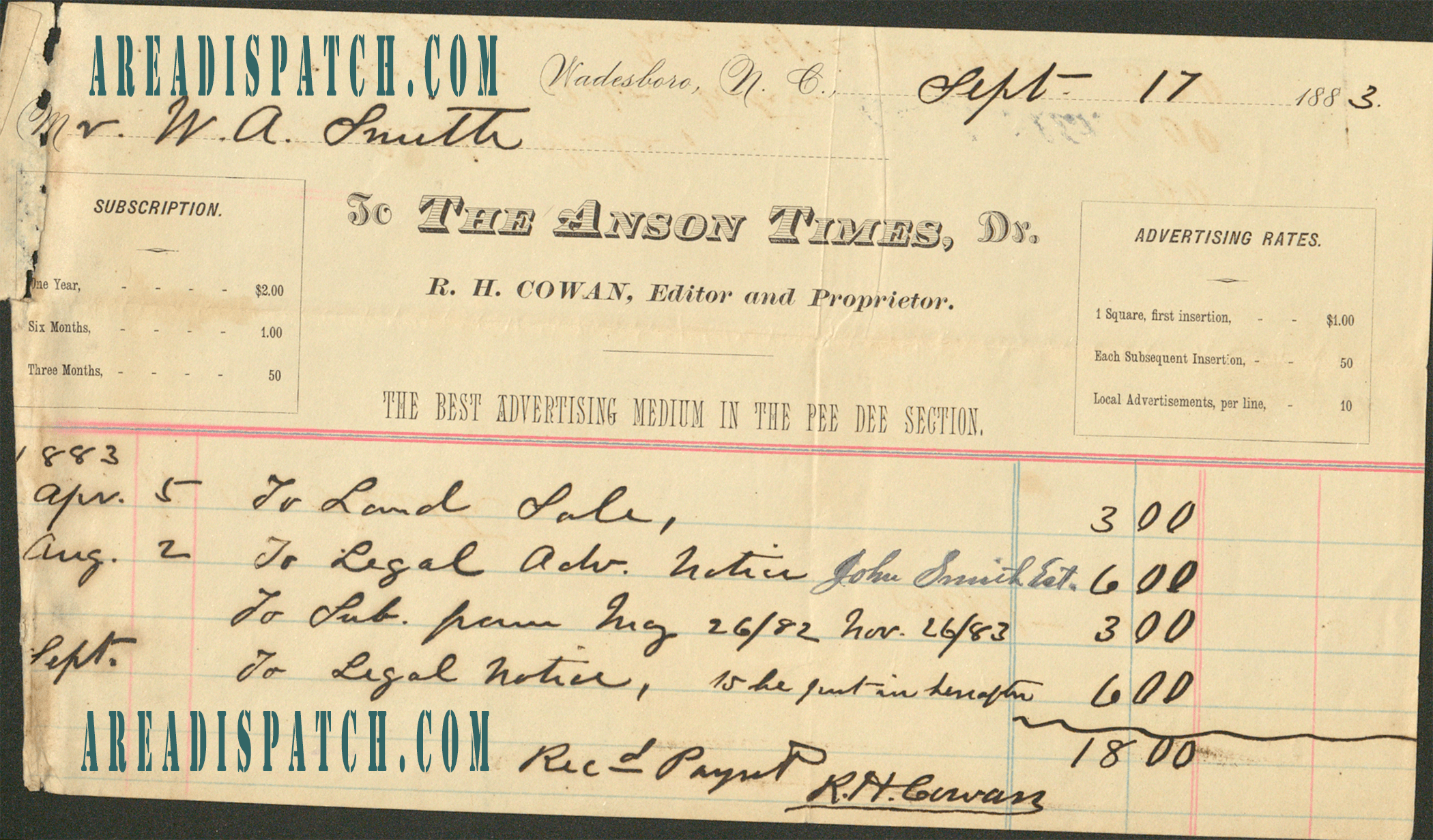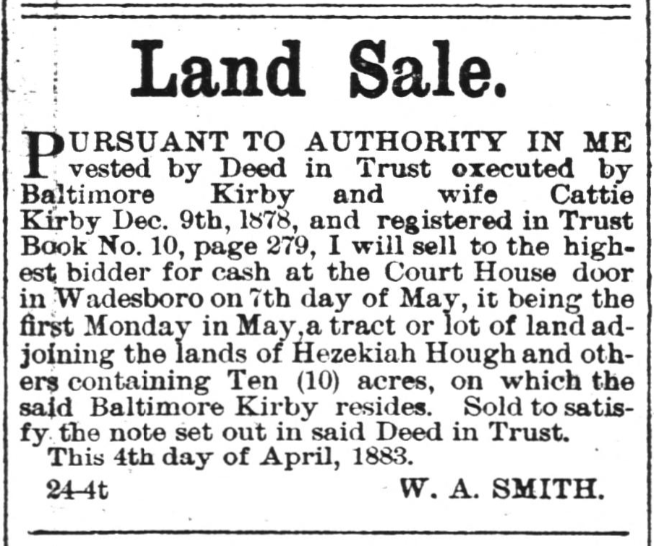The documents below are records of administration of the
estate of William Gaston Smith, William Alexander Smith’s father
who passed away in November 1879. The documents below indicate
that Smith was the administrator of his father’s estate.
They also state that Smith would be compensated 10%
of the value he both receives or distributes as administrator of his father’s estate.
It appears Smith had these agreements signed
by his two older brothers and their wives, as well as two other couples.
This means that Smith would receive 40% of the value
of any assets he received or distributed while administrator of his father’s estate.
The two documents following the agreements imply
that there may not have been much distributed from the estate,
but he would still be paid 40% of the value of whatever he received from the estate.
The two final documents make the claim in explaining a letter to Presley Nelms Smith from 1884
informing him that the five “negroes” he had received
“not withstanding their emancipation” should be considered an “advancement” from his father.
There are also 30 bales of cotton valued at 40-60 cents per pound
purported to also be an “advancement” to Presley Nelms Smith on his father’s estate.
There is also the mention of “defendants” in the documents,
and this appears to be how William Alexander Smith cut his brothers out of their family fortune.
This is how William Alexander Smith essentially became
the sole heir to his father’s immense ‘Old World’ family fortune.
The administration of the estate looks to have been
entrusted to William Alexander Smith in March 1880.
This is coincidentally at the same time in 1880 when William Alexander Smith
funded the construction of the original wood framed ‘All Souls Church’ in Ansonville.
Smith’s ‘retirement’ from his mercantile business also
follows the full settlEMENT of the estate in the mid-1880s with its “advancements”
and the seemingly omitted distributions. Not only did smith inherit
the overwhelming majority of his father’s estate ahead of his two older brothers,
but he the agreements preceding the final two pages entitled him to be
paid 40% of the value of his inheritance by the parties who ‘signed’ the agreements.
THere is a major issue with the agreements below.
Several signatures appear to be signed with a different instrument
than what penned the body of the agreements,
but the handwriting throughout each agreement
and all signatures appear to be suspiciously similar.
The “advancement” of Jerry, Jim, Mark, Hannah, and Anna
were in a time they were no longer considered property.
The part about their emancipation acknowledges their freedom,
but completely disregards it to ‘cut out’ his older brother from the fortune.
This raises a serious question about the claimed
generosity of WIlliam Alexander Smith.
The products of our investigation into william Alexander Smith
sufficiently answer this QUESTION…
It’s ‘odd’ how William G. Smith will be the administrator
of the deceased William G. Smith’s estate…
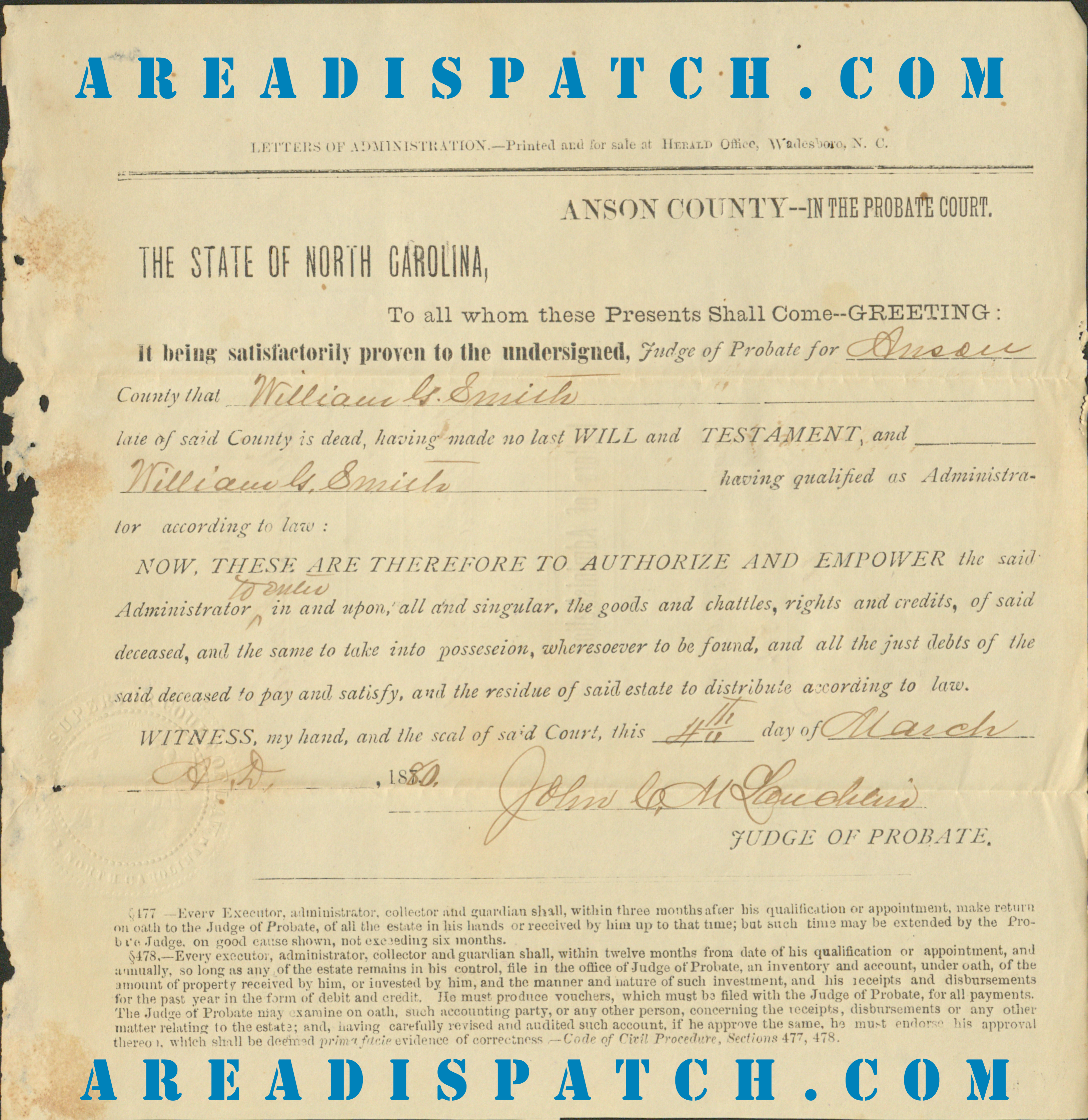
See More from John C. McLauchlin HERE
Coincidentally, William Alexander Smith funded the construction of the original wood frame of the All Souls’ Church of Ansonville, in 1880. It must have been a windfall in his overly ‘successful’ mercantile business in Ansonville that provided this ‘enormous’ wealth… There are also many investments that would build his inherited fortune starting at this time. Not to mention cutting out his other siblings and, undoubtedly, dreaming up the 10% compensation from four different couples who were also heirs to the estate of WIlliam Gaston (not Grove) Smith.

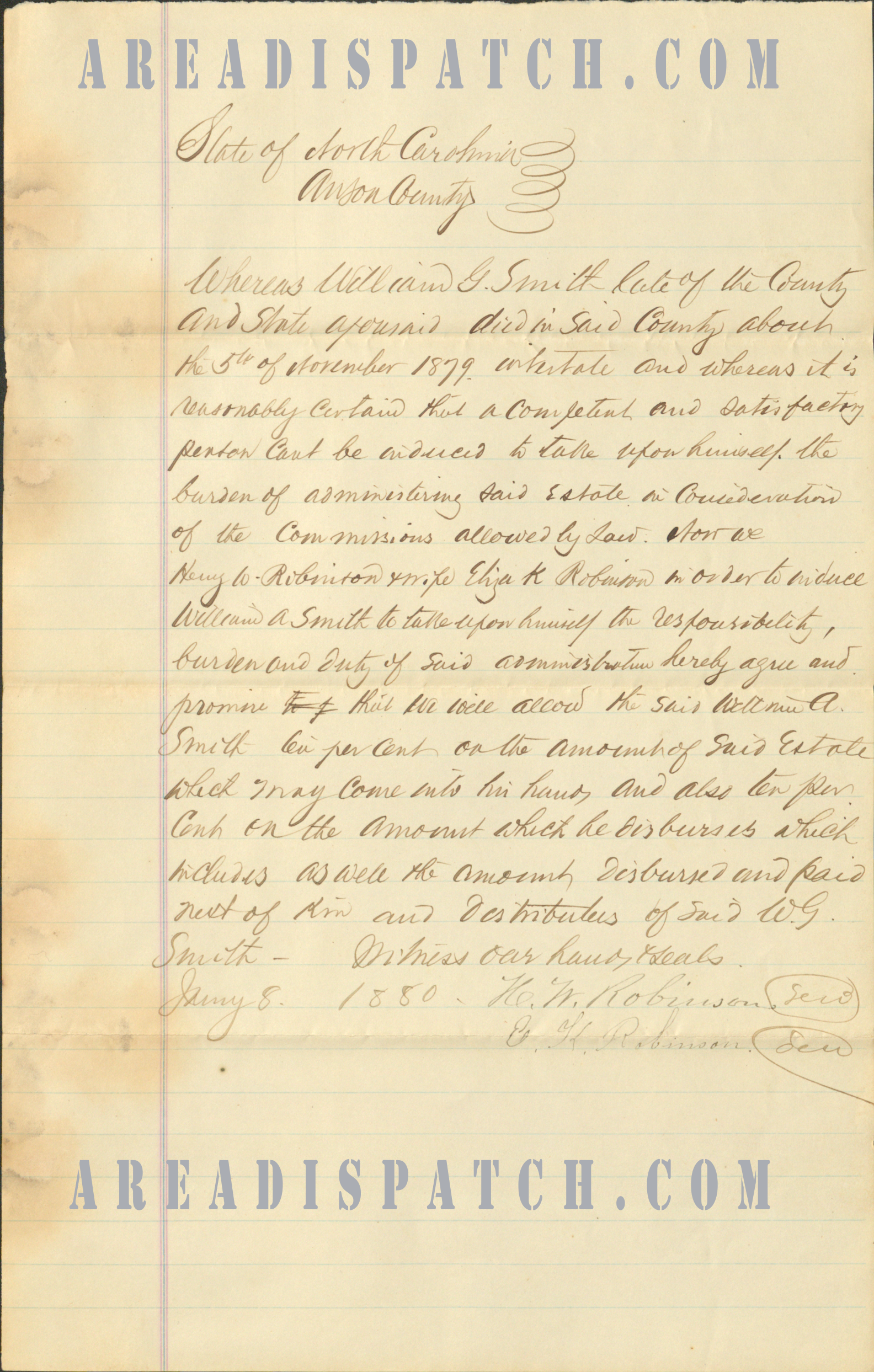
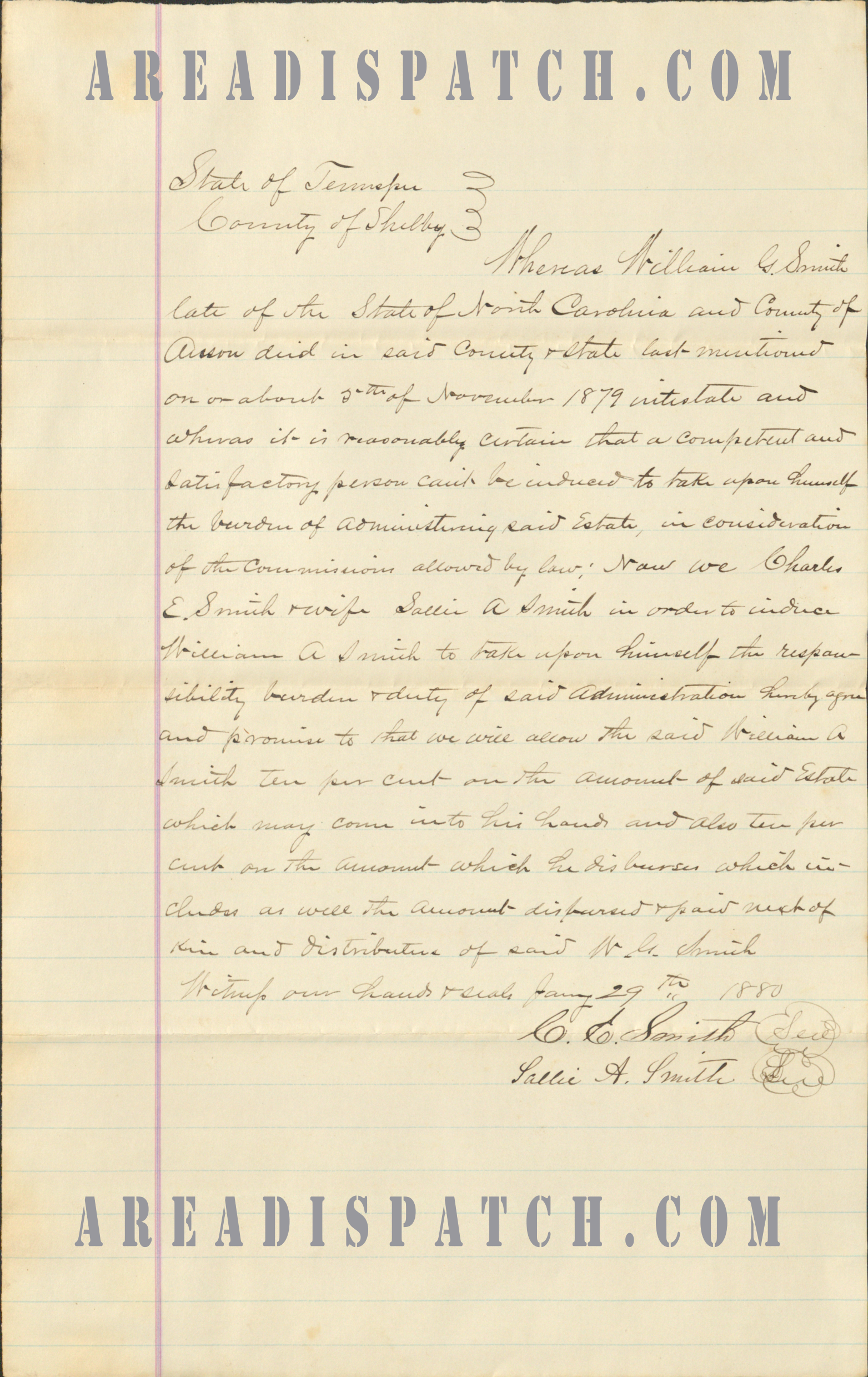
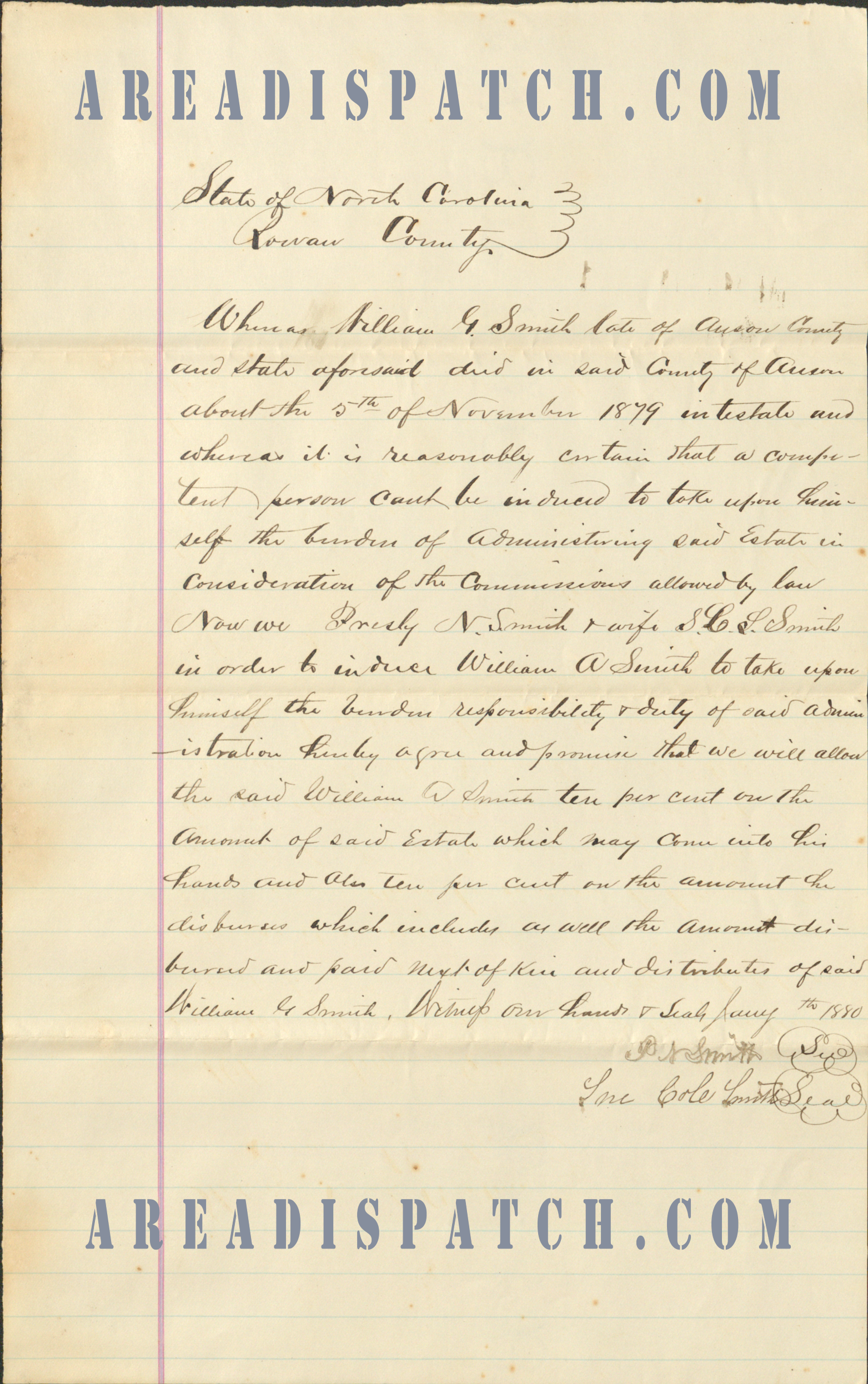
The “advancement” discussed in what appears to be some sort of affidavit
states that he did not acknowledge the freedom of the former slaves
he was considering as payment for his brother’s share of the inheritance.
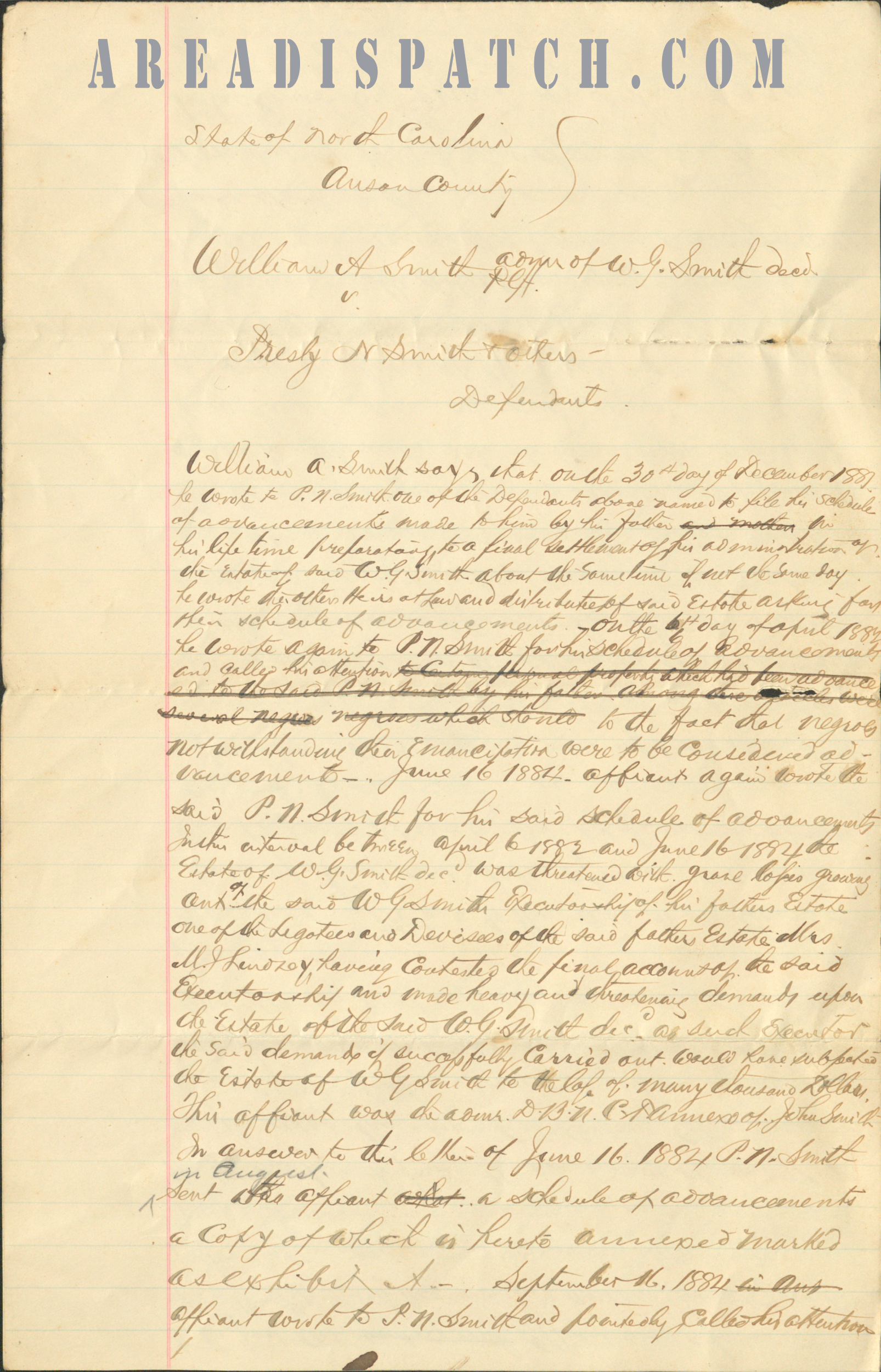

“On the 6th(?) day of April 1884, he wrote again to P.N. Smith for his
schedule of advancements and called attention (crossed out portion here)
to the fact that negroes notwithstanding their emancipation
were to be considered advancement – June 16 1884.”
